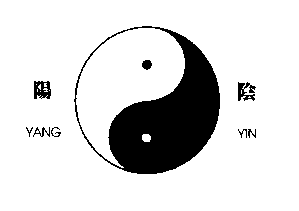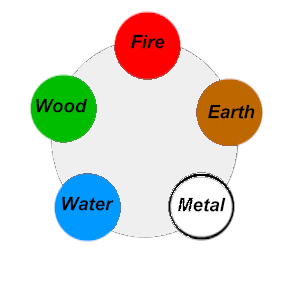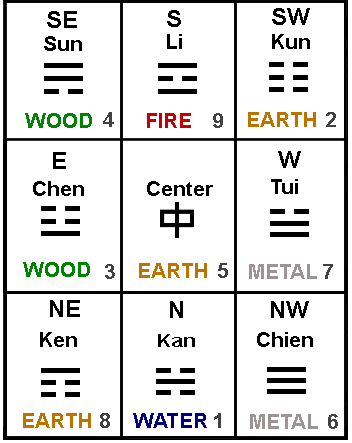Feng Shui, literally means wind and water. It is rapidly becoming
a standard practice for creating the ideal environment in which to
live and work.
Feng Shui is an ancient Chinese study of the natural and "built" environment
and has been practiced for thousands of years. This environment can be
at the office, in your home, in a building, or on real property.
A Feng Shui analysis examines the surrounding environment, the building,
how the people interact with the building and looks at time-related factors.
Based upon these considerations, recommendations can be made on how to
improve your relationship with the environment around you. Results include
prosperity,
health benefits, and well being. Properly applied, Feng Shui recommendations
can result in improvements in the life of the individuals who occupy the
property.1
How did Feng Shui originate?
Feng Shui can be stated as a form of "Geo-mancy" or "Earth Wisdom."
Many cultures in the world have a form of Geomancy in their history. The
Chinese form of Geomancy, or Feng Shui, has evolved
to be both a Science and an Art. The science comes from the calculations
and
methodology
used in analyzing a property. The Art of Feng Shui is the wisdom acquired
from performing a
multitude of analysis and
knowing the exact degree to which the remedies
(which are the results of the scientific analysis) are prescribed.2
Throughout ancient China, classical Feng Shui was a closely guarded
discipline
used as a tool to ensure the good health, wealth, and power of the Imperial
Dynasties. The keepers of this secret body of knowledge--Feng Shui Masters*,
were highly respected meteorologists, astronomers,
and other scientists who were charged with sustaining
the good fortune and prosperity of the royal court. It has been guardedly
passed down the generations through very specific lineages.
*These masters were very selective of their methods. Extreme care was
exercised in the selection of candidates who would become their successors.
What are the basic principles of
Feng Shui?
Note: These principles are shown as an introduction only. The depth
of these concepts go far beyond what a web site can explain. For
more information, please consider purchasing the Principles of Feng Shui
by Master Larry Sang.
The balance of Yin and Yang

Feng Shui is based on the principle of Yin and Yang. Balance, harmony,
consistent change, and the interdependency
of all things are but a few of the deep meanings within this simple representation.
Yang representing heat and light is rising and Yin representing cold and
darkness descends. These are just two of the many examples of logic and
insight to be discovered with this image.
Shown above, the image represents the true orientation of the Yang and
Yin. Yang, representing heat rises on the left (or East) and reaches its
peak at the top (South). Yin representing coolness descends on the right
(West) and reaches its maximum at the bottom (North).
Another analogy is that the sun rises in
the East, reaches its hottest at noon and sets in the west, soon reaching
its darkest. Yet within Yin there is a seed of Yang waiting to arise and
within Yang there is Yin waiting to descend. This analogy can be applied
to time, seasons, directions, and many other cycles of change. 
The Relationship of Five Elements
 Another simple, yet powerful representation based upon the Tai Chi (Yin
and Yang representation shown above) is the 5 elements diagram. It is a
view of how the elemental energies interact. Shown above in its balanced
state, it is in harmony. Yet each element can strengthen or weaken other
elements in a variety of beneficial and detrimental
ways. When calculating the energy "blueprint"
of a property these interactions provide the key to correcting issues within
a property.
Another simple, yet powerful representation based upon the Tai Chi (Yin
and Yang representation shown above) is the 5 elements diagram. It is a
view of how the elemental energies interact. Shown above in its balanced
state, it is in harmony. Yet each element can strengthen or weaken other
elements in a variety of beneficial and detrimental
ways. When calculating the energy "blueprint"
of a property these interactions provide the key to correcting issues within
a property.
The Eight Trigrams
The Eight Trigrams are the basis for Feng
Shui analysis and calculations. A Trigram is a representation of one of
the eight directions. In the "Ba Gua" diagram below there is also a center
which has no directional association, but is associated with earth. Based
also on Yin and Yang concepts, the I-Ching, the Five Elements, and the
Lo-shu map, it conveys a map for all other calculations used to determine
the energy blueprint within a property.3

The East/West Theory
(8 House Theory)
Both people and houses belong to one of the above Trigrams. Each of
the Trigrams fall into two distinct categories as either east group
or west group. Matching a West group house type to a West group person
is ideal, as is matching an East group house to an East group person.
| East Group |
West Group |
| North |
Southeast |
| South |
Northwest |
| Southeast |
Southwest |
| East |
West |
Effects of the Solar System (Xuan Kong)
The Environment
The environmental aspects are what most people immediately think of
when they consider Feng Shui. Things such as not having sharp corners pointed
at them and not living under high tension
power lines are a couple of common examples that everyone either knows
or can understand. Other environmental aspects such as living next to a
freeway or a construction site are considered unfavorable. The elimination
of "Sha" or evil influences and strengthening those environmental aspects
that are good is what an environmental analysis recommends. These are but
a few examples of what needs to be examined during an analysis.4
How are these principles applied?
Feng Shui is based upon a set of theories and complex calculations derived
from the I-Ching. This includes an in-depth understanding and application
of the basic principles. Using these principles and taking into account
the physical relationship between the natural environment and the magnetic
fields of the Earth provides a "blueprint" of the influences around us.
Using this blueprint we can see clearly the energies or "Chi" that effect
us in our properties. 
How is a Feng Shui analysis done?
The Feng Shui practitioner first observes
the environment, using a Lo Pan (compass) to determine the orientation
of the property. Calculations are then completed according to the basic
principles. Then a determination of the energy characteristics within the
property and its resulting effects on the occupants
are made based on the results of these calculations. Remedies are then
prescribed where necessary in order to balance the energy to produce a
positive effect!
Misunderstandings of Chinese Geomancy
Feng Shui is becoming more prevalent in
the West. This can be attributed to more and
more people becoming aware of how their environment affects them. The health
effects of high-tension power lines is but one example of how people
are becoming cognizant of their environment
and its relationship to their health and prosperity. Unfortunately, a lot
of hearsay and misunderstanding as to what
Feng Shui truly is has also become commonplace.
Some people have confused Feng Shui with religion and burning charms.
Others think that seeking advice from Feng Shui practitioners contradicts
the doctrines of their own religion. This
is a mistaken concept.
Chinese geomancy (or Feng Shui) is not the product of any religious
belief system. Rather, it is based on a set of calculations. The qualified
practitioner examines the four aspects of Building, Environment, Time,
and most importantly, People. Most books and information widely available
only look at the first two aspects: Building and Environment. This is only
a partial examination.
Time and People are two very important components
that should not be omitted. A particular building may have a good environment
and other positive attributes, but for a specific individual, it might
require further examination and corrections to meet their individual goals
for that time in their life and the life of the building. 
How does one find a qualified practitioner?
The classical Feng Shui consultation involves
no guesswork. Every building has unique energy characteristics that need
to be individually addressed. We say that True Feng Shui recommendations
utilize
only the five elements and not such things as mirrors, flutes,
incense,
or prayers.
Just as a qualified physician will not make a prescription
without first meeting the patient, a proper Feng Shui analysis requires
a visit to the property.5
Feng Shui looks at not only the environment, but also the orientation
of the property within that environment.
Feng Shui is not related to any religion or belief system. A qualified
Practitioner is one who has studied with a Master for many years and has
acquired a scientific discipline, thus enabling them to apply complex
calculations and an in-depth understanding of the fundamental principles
of Feng Shui. Only then are they able to make very specific recommendations
that can effect positive changes in one's lifestyle, relationships and
financial returns.
Properly performed, Feng Shui can bring balance, harmony, and prosperity
to one's life. 

After
reading discussion
1)
Explain in your own words what a Feng Shui analysis is composed
of and what Feng Shui recommendations can result in.
2) Describe the basic principles of Feng Shui in your own words.



